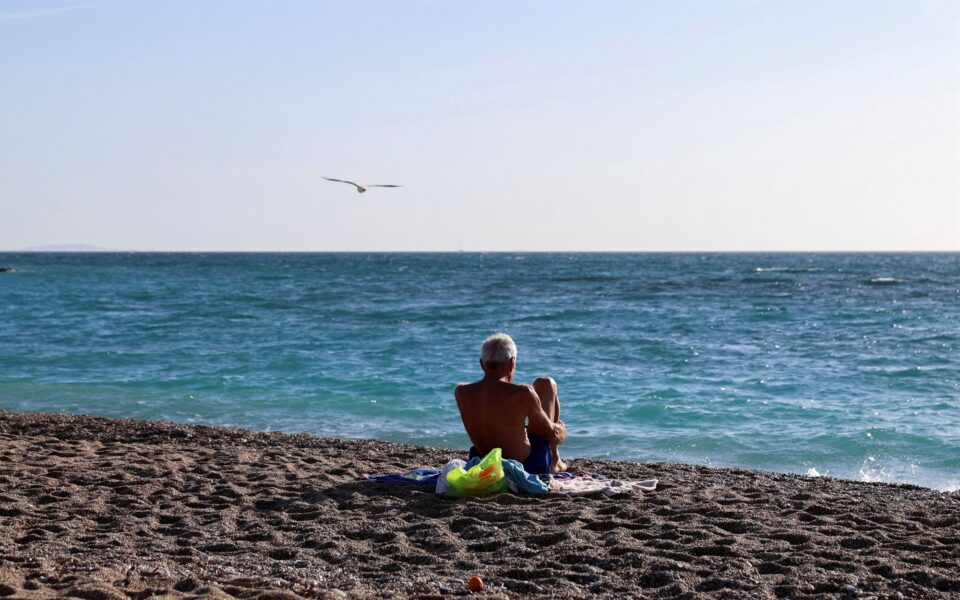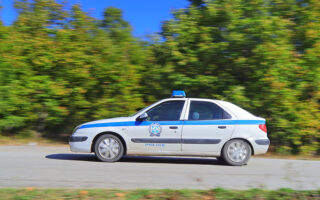The last Greek summer

The signs are there, everywhere. Athens is full of foreign tourists. You see them packed into the narrow city-center streets, but also unexpectedly wandering around the suburbs, smiling from ear to ear, slaloming between the cars parked on the sidewalks. Some of Greece’s most popular destinations are already packed – with foreigners. Others are getting there. News bulletins celebrate another triumphant season. But there is something much more complicated lurking behind the scenes. Surely you have heard people talking about how steep the prices are this year for ferryboats, hotels and rooms-to-let.
According to a recent study, almost half of Greeks cannot afford a one-week holiday this summer. Of those who will be going on holiday, around half will be staying with friends or going to their own summer homes. It is not customary. It’s an evident trend. It stopped briefly during the pandemic, but it’s back: The Greek tourism product is increasingly aimed at foreign travelers. The notion of the Greek summer, of a long holiday at a beautiful location, is gradually becoming the stuff of an elusive dream for most.
How did this happen? How did the “Greek summer” suddenly become a product aimed exclusively at foreign travelers, too expensive for the locals, as in other destinations in developing countries, like Bali, the Seychelles and the Maldives? The bulk of the increase in foreign arrivals in the past decade is due precisely to the fact that the number of people traveling to foreign countries rose sharply and fast. It’s an explosion that has led to all the different problems we have been seeing around us these past few years: neighborhoods once inhabited by locals being taken over by Airbnbs; skyrocketing rental rates pushing out the locals; erosion of the character of popular destinations; a declining quality of life for the remaining residents.
The Greek summer is a part of our identity. Like horiatiki salad, like complaining about the referee and like parking illegally ‘just for a minute’
Even worse, places that are not designed to host large numbers of visitors are simultaneously seeing their infrastructure buckle. Even if an airport has been renovated at some island with 2,000 residents, even if more beds have been added, even if laborers – domestic or foreign – have been found to service all these new accommodation units, the road network, the energy, water, sewage and waste management systems remain designed for 2,000 residents, at best.
We have also gone to the next level: As locals across Greece try to take advantage of every last square meter to sleep or feed as many visitors as possible, they become impervious to the laws and the environment, and appear oblivious to how much worse the experience they’re offering their visitors becomes, but also how inevitable the collapse of the “brand” the destination is offering becomes. The approach of tourism growth as a means to make lots of money fast may be expected in a business environment where everything is seen opportunistically and myopically. But it is, nevertheless, a tragedy that is unfolding before our eyes and told in articles and stories and TikTok videos by disappointed influencers.
And herein lies the problem: If we lose the “Greek summer,” what’s left? What are we?
Foreign visitors want to come here to experience the Greek summer as we did up until a few years ago. It is not about mimicry or marketing – it is simply that is a great way to spend a holiday. But for us, this type of holiday is not just a habit or a custom. The Greek summer is a part of our identity. Like horiatiki salad, like complaining about the referee and like parking illegally “just for a minute.” Lazing on the beach, swimming in the sea, eating at a taverna, taking an afternoon stroll in a pretty seaside town, eating ice cream at the harbor – these are the things that comprise an experience many people dream of, but is so much more for us. Beyond the occasional athletic triumph, there aren’t many experiences we share as a community. We’re a bit of a hodgepodge, a mash of families sharing the same geographical space, often grudgingly. But we have our summer holidays. That this is an experience that is becoming more and more out of reach for more and more Greek men and women is something that will inevitably have consequences. It’s a collective trauma. It’s another thread being pulled from the tattered sweater that is our identity as a nation, as a society.





